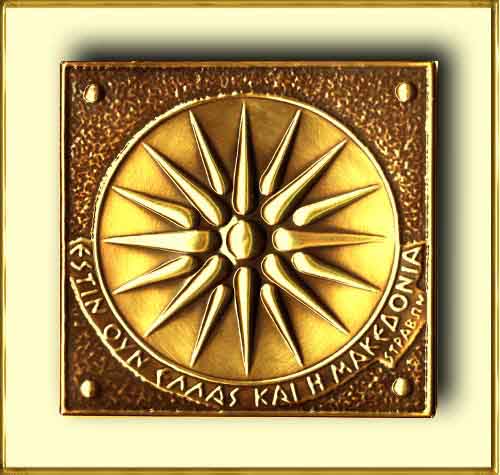|
|
|||||||||||||||
|
US
Government Forgets Greece November 9, 2004 Waking up on Wednesday morning after the Presidential election, we thought we could justifiably stop talking of politics for a while. We had done our duty in writing an article a few weeks before the election and even in devoting a poll question to the race. (As a side note we were surprised that Bush actually garnered a majority in our poll considering what we imagine was a high percentage of respondents from DC and the surrounding suburbs, which resoundingly went for Kerry.) A couple of days after the election however, we received the following email, which brought politics back to the forefront. (We’ve omitted the name to protect the identity of the sender.)
While we could have taken that backhanded compliment in the first paragraph and used it as an excuse to reply with something like "we fail to see where that’s our problem," the writer of this email raises a valid point. To briefly catch those of you up who don’t know what this email is about, for thousands of years and today, the geographic region in the northern part of Greece and to the north of it was known and as Macedonia. As with everything Balkan, the region changed hands and was divided up between several nations throughout the years. A Macedonian province was created as a part of Yugoslavia. For years while they were still a part of Yugoslavia, most people didn’t even notice or care about the name for the region. In 1991 the Former Yugoslav Republic of Macedonia (FYROM) declared its independence from Yugoslavia and, in a messed-up neo-nationalist revisionist sentiment, tried to place the Star of Vergina, a symbol from Phillip II of Macedon, on its flag, thus trying to link themselves to a historical past in Alexander the Great that they could not legitimately claim. (The Slavic descendants of the current residents of that region came on the scene at the earliest about 1000 years after Alexander.) What started making Greeks, particularly in the north of Greece understandably nervous, is that Vergina is in Greece, south of Thessaloniki, pointing to FYROM having territorial aspirations for the part of the geographical region of Macedonia that lies in Greece. FYROM agreed to remove the Star of Vergina from its flag and was later admitted to the United Nations as FYROM. About 40 individual nations, including Bulgaria, Russia and China had recognized FYROM as the “Republic of Macedonia,” but until last Wednesday, the U.S. was not one of them. While many in the Greek community didn’t realize what was going on, the American Hellenic Institute, a lobby and think-tank based here in DC, was already mobilizing a response. A slew of emails went out over its email list to inform the community and to coordinate it to write the President and their congressmen. You can check out www.ahiworld.org to read these action alerts and follow the latest on this issue. Never heard of the American Hellenic Institute? You’re probably not alone. For all the good work that AHI has done over the years, it remains a traditionally under-funded and under-staffed organization. The only reason that those of us who have heard of the organization know about it is, like the writer of the email said, because we are fortunate to live in this area where all the politics and decision-making takes place. But a DC-based organization can’t do it alone. It needs the power of an organized grassroots movement. The question for us here at DCGreeks.com was, “What can we do about it?” Our theory is that the same people that have enough time to come to this site to find out about the next Greek Night have the time to send an email to their congressman when an issue like this one requires us to act. Let’s face it most of us don’t have the time to go out and make changing this country’s policies and improve US-Greek relations our life’s work. Leave the policy formulation and coordination to those like the American Hellenic Institute who have been on the front lines for years. But when a call to action is raised on those rare occasions, we should do whatever we can. Here is a sample email to send to your Senator or Representative. We’re not promoting this as the latest and greatest statement on this issue, but it gets the point across, with just enough background to let the reader know that we’re informed on the issue and take it seriously. Feel free to add or subtract anything from it as you wish. In fact please do it, if not for the sake of the staff that will more than likely be filtering these emails on behalf of their intended recipients. For maximum impact make sure to list your name and address on the email to put more of an identity on it than just an email address. Also make sure to send a copy to the American Hellenic Institute at [email protected] after you’ve sent the original so they can track the progress of the community on this issue. Feel free to let us know as well. We’d be encouraged to learn that our members and visitors felt strongly enough about this issue to take a stand. In the future we’ll devote a special section of our site to action alerts issues arise that affect the Greek-American community, where you’ll be able to send emails on a variety of issues to Senators, Representatives, the President and other decision makers. (We’ll even tell you who it is, and what their email address is, if you don’t know. For now though, here is basic information on how to contact the key decision makers on this issue.) This brings us to the end of our public service announcement. We’ll predictably, and secretly maybe even regrettably, return to our regularly scheduled content on “important” and “serious” matters such as telling you about the next Greek social event or trying to compare dating in the Greek community to a gyro or souvlaki sandwich in the coming days. But rest assured this won’t be our last foray into discussing serious matters and please call us out on it if there is something you think we should be addressing. We’d welcome the feedback and even the criticism.
|




